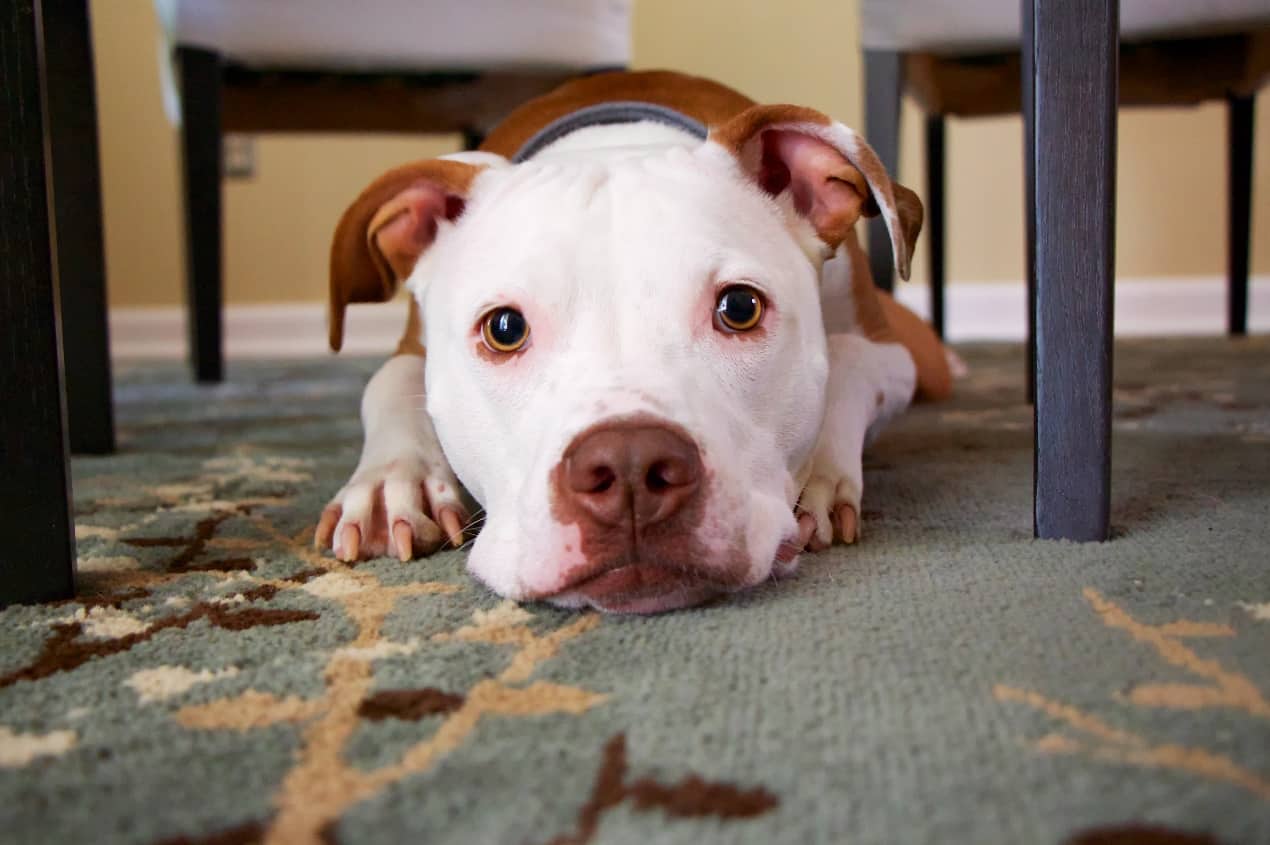If your dog is straining to go the bathroom and producing little or no waste, he may be constipated. As a pet owner, it’s essential to understand the signs and symptoms of constipation in dogs to get relief as soon as possible. This article will teach you everything you need to know about constipation in dogs, including what causes it and how to treat it. So read on if you want to learn how to help your furry friend poop like a pro!
Can Dogs Become Constipated?
Just like humans, dogs can suffer from constipation. This is where they have difficulty passing stool or experience hard, dry stools. Several things can cause constipation in dogs, including a lack of fiber in their diet, not drinking enough water, or even certain medications. If your dog is constipated, you may notice that they strain to defecate, have fewer bowel movements than usual, or that their stool is hard and dry. Constipation can lead to more serious health problems if left untreated, so taking your dog to the vet is essential if you think they may be constipated. Treatment for constipation in dogs will vary depending on the underlying cause.
What Are the Signs of Dog Constipation?
Dog constipation is a common condition that a variety of factors can cause. While it is usually not a serious problem, it can be quite uncomfortable for your dog. A few key signs to watch out for will help you determine if your dog is constipated.
The most obvious sign of dog constipation is straining to defecate. If your dog is having difficulty passing stool or if it produces hard, dry stools, this is a sign that it may be constipated. You may also notice that your dog is going less often than usual or that it isn’t producing any stool at all.
Another sign of constipation in dogs is discomfort or pain in the abdomen. If your dog seems to be in pain when he tries to defecate, this is a sign that he is constipated. You may also notice your dog whining or crying or appearing restless or anxious.
If you notice any of these signs, you must take your dog to the vet for an examination. The vet can determine whether your dog is constipated and recommend the best course of treatment. In most cases, constipation in dogs can be treated with simple home remedies, such as increasing the amount of fiber in their diet. However, in some cases, more serious treatment may be necessary.
Diagnosis of Constipation in Dogs
If you think your dog may be constipated, the first step is to visit your veterinarian. They can diagnose constipation and rule out any other potential health problems.
There are a few different ways that veterinarians can diagnose constipation in dogs. The most common way is through a physical examination. This will involve your veterinarian feeling your dog’s abdomen and checking for any blockages in the intestines.
Your veterinarian may also recommend x-rays or an abdominal ultrasound. These tests can help confirm a constipation diagnosis and rule out other potential health problems.
Treatment for constipation in dogs will vary depending on the underlying cause. In many cases, simple changes to your dog’s diet can help relieve constipation. Your veterinarian may recommend adding more fiber to your dog’s diet or switching to a food that is easier to digest.
In some cases, medication may be necessary to treat constipation. Your veterinarian can prescribe laxatives or enemas to help loosen your dog’s stool and make it easier to pass.
If constipation is a chronic problem, your veterinarian may recommend surgery to remove any blockages in the intestines. Surgery is usually only recommended in severe cases that do not respond to other treatment options.
What To Do If Your Dog Is Constipated?
If your dog is constipated, you can do a few things to help ease their discomfort and get them back on track.
First, try feeding them a high-fiber diet. This can be accomplished by adding canned pumpkin or bran to their food. You may also want to increase the amount of water your dog drinks. Make sure they have access to fresh, clean water at all times.

If these home remedies don’t seem to be helping, you can try giving your dog a glycerin suppository. These can be found at most pharmacies. Insert the suppository into the rectum using a glove or your finger, be careful not to insert it too far. The glycerin will help lubricate the stool and make it easier to pass.
If your dog is still constipated after trying these home remedies, it’s time to call the vet. They may recommend a course of laxatives or enemas. In severe cases, surgery may be necessary.
No matter what treatment you choose, the most important thing is to ensure your dog stays hydrated. Dehydration can quickly lead to other health problems, so ensure they have plenty of fresh water to drink.
Our Final Thoughts
If you were wondering can dogs become constipated, now you know that yes, dogs can get constipated. Several reasons may happen, including eating too much, not drinking enough water, or not getting enough exercise. If your dog is constipated, you can do a few things to help them out, like adding more fiber to their diet or giving them a mild laxative. If constipation doesn’t go away or your dog seems to be in pain, it’s best to take them to the vet.












![PetDroid Interactive Dog Toys Dog Ball,[2025 Newly Upgraded] Durable Motion](https://m.media-amazon.com/images/I/41noLQzf0wL._SL500_.jpg)


